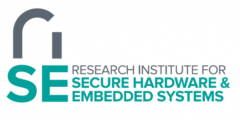The UK Research Institute in Secure Hardware and Embedded Systems (RISE) Annual Conference was held at Prince Philip House, at the Royal Academy of Engineering, London on 11th September 2025.
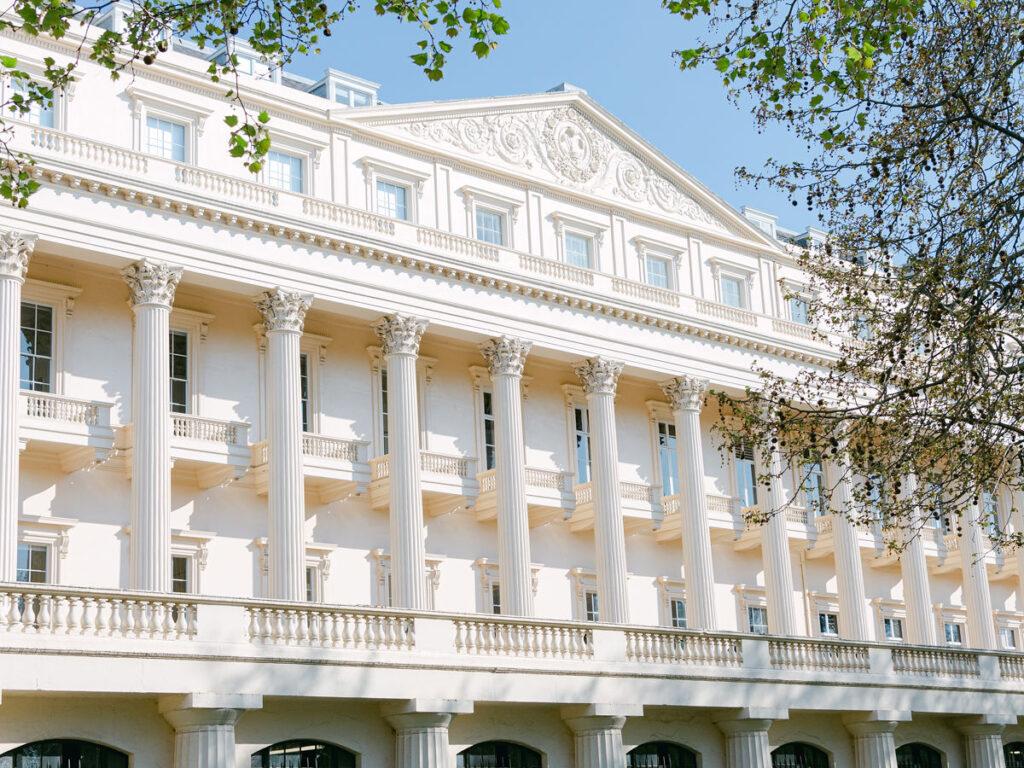
Conference Chair


Prof Máire O’Neill, FREng
Regius Professor in Electronics and Computer Engineering, Director of the Research Institute in Secure Hardware & Embedded Systems (RISE), Queens University Belfast.
Agenda
| RISE Annual Conference, 11th September 2025, Prince Philip House, London. | |
|---|---|
| 09:00 – 10:00 | Registration & Tea/Coffee/Refreshments |
| 10:00 – 10:10 | Opening Remarks & Welcome, Prof Máire O’Neill |
| 10:10 – 11:10 | Keynote Session: “Breaking Confidentiality and Integrity Through the Microarchitecture and Finding Free Lunch Down There” Prof Daniel Gruss, Graz University of Technology. |
| 11:10 – 11:30 | Break |
| 11:30 – 11:45 | RISE Project Updates Session: “BlueGuard: Accelerated Host and Guest Introspection Using DPUs” Dr Ahmad Atamli, University of Southampton |
| 11:45 – 12:00 | “SECCOM: CXL and QEMU- setup for research on composable systems” Dr Joshua Lant, University of Manchester View RISE 2025: Joshua Lant CXL (PDF) |
| 12:00 – 12:15 | “BadRAM: Breaching Processor Security via Rogue Memory Modules” Professor David Oswald, University of Birmingham |
| 12:15-12:30 | “TruDetect: Trustworthy Deep-Learning based Hardware Trojan Detection” Dr Ihsen Alouani, Dr Niall McLaughlin, Queens University Belfast |
| 12:30 – 13:30 | Lunch & Networking (Poster Session) |
| 13:30 – 13:45 | Prof John Goodacre, Challenge Director, DSbD, UKRI Update on Government Security and Resilience Activities. |
| 13:45- 14:40 | Early Career Academic & Researcher Lightning Talks (5 min each): “Audio-based shared secret generation method – Vinod Khandkar, Post-doctoral Research Fellow, University of Surrey “Cheri-Cap-Lib – A hardware library for CHERI capability implementations including formal equivalence between Bluespec and SystemVerilog implementations” – Jon Woodruff, Senior Research Associate, University of Cambridge “Chosen-ciphertext Attack on SCA-resistant Lattice-based PQC Implementation and Protection” – Anh Tuan Hoang, Lecturer, Queen’s University Belfast, CSIT “Transient-execution attacks in CHERI and how to mitigate them” – Franz Fuchs, Postdoctoral Research Associate, University of Cambridge “Side-Channel Leakage Assessment in the Pre-Silicon World” – Yusuf Hegazy, PhD Candidate, University of Birmingham “Spectre Hunting with Extended Formal Specifications” – Daniel Wright, Post-doctoral researcher, University of Surrey “E2EdgeGenAI: Energy-Efficient Edge Generative AI for Secure Embedded Robotics and Hardware” – Tinoosh Mohsenin, Associate Professor, Johns Hopkins University “Securing UAV Vision: Hardware Threats and the Defensive Road Ahead” – Selma Dilek, Visiting Postdoctoral Research Associate, University of Bristol “Fault Injection in SPDM” – Peiyao Sun, Postdoctoral researcher, University of Southampton “Understanding threat actors as users – how much can we anticipate?” – Andrew Peck, PhD Candidate, University of Loughborough |
| 14:40 – 14:55 | Break |
| 14:55 – 15:00 | Impact Competition Introduction Louise Cushnahan, Head of Innovation at RISE |
| 15:00 – 15:15 | “SHIELD: A New Layer of Defense with Intelligent Hardware Monitoring for Safer Embedded Systems.” Dr Sangeet Saha, University of Essex |
| 15:15 – 15:30 | “PaRtial Execution oF EncRypted dAta using reconfiguraBle hardware (PREFERABLE)” Prof Gareth Howells, University of Essex |
| 15:30 – 15:45 | “Combating fake media with edit-tolerant authentication .” Daniel Fentham, Prof David Oswald, Prof Mark Ryan, Dr Xiao Yang, University of Birmingham |
| 15:45 – 16:00 | Closing Remarks |
| 16:00 – 17:00 | RISE ISAB Meeting (closed session) |
Our Speakers

Daniel Gruss is a Professor at Graz University of Technology. He teaches since 2010 and researches system security since 2014. Research highlights include the Flush+Flush side channel, the Rowhammer.js DRAM fault attack from JavaScript, and the Platypus software-based power side-channel attack. His research team co-discovered the Meltdown and Spectre bugs published in early 2018. In 2022, Daniel received a prestigious ERC Starting Grant to research the foundations of sustainable security.
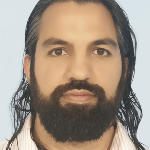
Dr. Ahmad Atamli is a lecturer in Cyber security at the University of Southampton. He graduated with a BSc. in Electrical and Computer Engineering from the Technion-Israel Institute of Technology in 2012. He received a DPhil from the University of Oxford in System Security in 2017. He joined Oxford as a Lecturer in Software Engineering in 2019, following which he moved to Southampton to lead the Hardware Security research. Dr. Atamli has published numerous papers and technical reports in IoT security, system security, hardware security, intrusion detection, malware analysis.

Dr Joshua Lant -Joshua is a Research Associate in the Department of Computer Science at the University of Manchester. He has been in the Advanced Processor Technologies group since 2016, being awarded his Ph.D in 2019 for work on FPGA interconnects in HPC architectures. His primary research interests are in Linux networking and PCIe, FPGA interconnects and microarchitecture, and binary modification tools.

Prof David Oswald is a Full Professor in the Centre for Cyber Security and Privacy at the University of Birmingham, UK. His main field of research is the security of embedded systems and trusted execution. On the one hand, the focus is on attack methods that exploit weaknesses in the physical implementation of mathematically secure cryptographic algorithms. Those techniques include both (passive) side-channel analysis and (active) fault injection, as well as reverse engineering. On the other hand, David is working on the practical realization of security systems in embedded applications. His research on vulnerabilities of various wide-spread systems (e.g. DESFire RFID smartcards, VW/Hitag2 RKE systems, and Intel SGX) has created awareness for the crucial importance of security among developers of embedded devices.

Mark Ryan is a Professor in Computer Security for the School of Computer Science and the lead for the Centre of Security and Privacy at the University of Birmingham.

Daniel Fentham is a postgrad in computer science from the University of Birmingham, currently working on his PhD looking at generalising Bayesian inference in Geometric Deep Learning practices. Previous work includes the security of facial recognition systems and evolutionary methods to produce more secure image classification networks.

Xiao Yang is a Research Fellow in Cyber Security. Her research filed is cryptography, with a main focus on zero-knowledge proof and applied cryptography. She obtained her PhD degree and worked as a postdoc in the Hong Kong Polytechnic University before joining the University of Birmingham.

Prof John Goodacre – John is Professor of Computer Architectures at the University of Manchester & Challenge Director at Digital Security by Design. He was previously Director of Technology and Systems in the Research Group at ARM Ltd. and was responsible for the design and introduction of the ARM MPCore multicore processor and associated technologies that enabled today’s smartphone and became the foundation for future data center infrastructure.

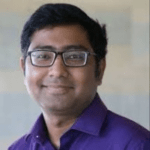
Dr. Sangeet Saha is a Lecturer (Assistant Professor) in the School of Computer Science and Electronic Engineering at the University of Essex. His research addresses key challenges in embedded systems, spanning real-time scheduling (FPGAs, multicore systems), fault tolerance, energy-efficient heterogeneous computing for edge AI, and embedded device cybersecurity. A notable outcome is the FORENSIC technology, funded by Innovate UK’s CyberASAP program and showcased at the National Cyber Security Centre’s (NCSC) flagship event, CYBER UK 2025. Dr. Saha’s research has attracted funding from NCSC, The Royal Society, Innovate UK (UKRI), and the Higher Education Innovation Fund (HEIF). He publishes in leading venues, including IEEE/ACM Transactions journals and premier conferences such as DAC and CODES+ISSS.
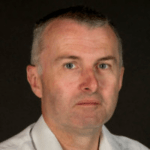
Gareth Howells is Professor of Cyber Security and Founder, Director and Chief Technology Officer of cyber security technology company, Metrarc Ltd, a University spin-out company. He has been involved in research relating to cybersecurity and secure communications for over 35 years and has published over 240 papers in the technical literature, co-editing two books and contributing to several other edited publications. His core research interests are device authentication, biometrics, secure communications and identity management. His principal contribution to cybersecurity is the development of ICMetric techniques for the derivation of digital signatures and encryption keys directly from properties of physical circuits. The technology significantly alleviates the need to store a copy of an encryption key and the work has given rise to several significant worldwide patents.
Getting there
Prince Philip House,
3 Carlton House Terrace
London
SW1Y 5DG
United Kingdom
